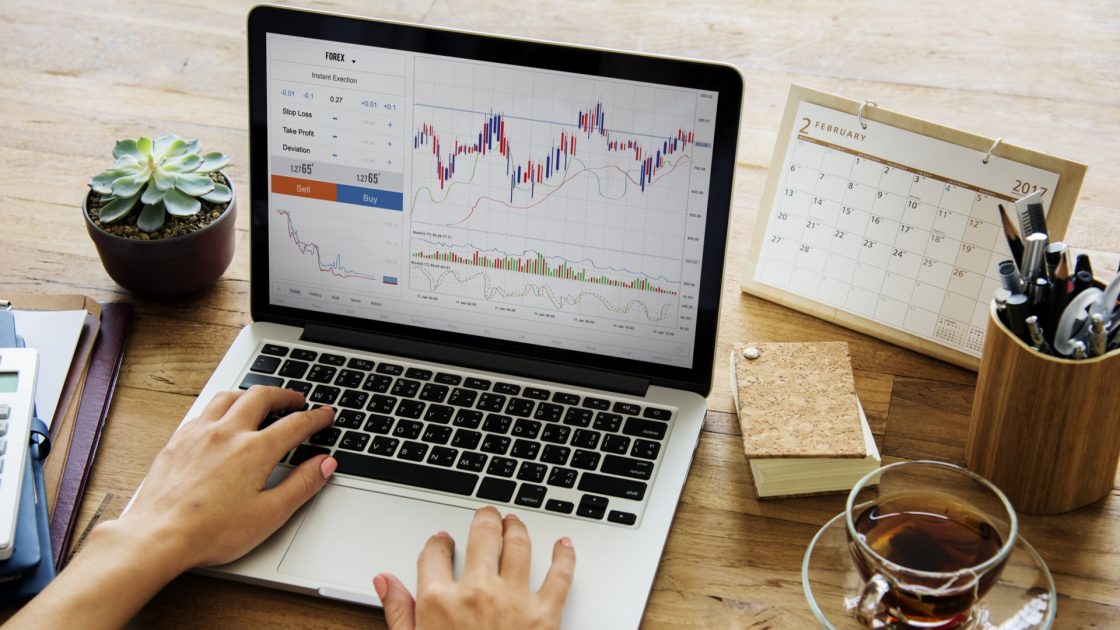Demonstration and Real Accounts: Psychological Differences

6 minutes for reading
It is no secret that trading results on real and demo accounts always differ, the former results usually being worse. In other words, if you succeed in trading on a demo account, you should always make allowance for the real situation. Some details of the execution of real trade orders, which were not visible on the demo accounts, may lead to this difference; however, such details are not significant enough to lead to serious deviations of the results.
Working on a demo account, the trader has already chosen the timeframe, the instruments, the volume of the opening positions, the instruments of analysis, the levels of entrance and exit — all trading principles and approaches. Yes, the trader is ready to start working with real money, as, in essence, trading on a demo account is in no way different to the real one. However, the one exception here is the real psychological readiness of the trader. The devil is in the different attitude to trading demo money and the trader's own money.
Difference between real and demo trading

So, what are the reasons and what is the difference between trading as an exercise and real trading?
1. The trader treats their demo account with ease because they know that they can open another one with new starting capital any moment. As usual, there are lots of explanations to the failures on the previous account, among which one of the most popular one is: the price made a reversal when I was absent from the computer, so I could do nothing.
There is yet another category of traders who open a new account upon receiving a loss on the previous one — they just like it to begin trading from a profitable trade, and no other way. However weird it is, but they do not even realize that it will not be possible on a real account, as they will not be forgetting losses there with such ease.
It would be much wiser to allow for a limited number of paid demo accounts. In this case it is unlikely that traders were so light-minded.
2. Trading strategy is better visible on a demo account. Why? Because there is nothing easier than receive a planned Stop Loss so long that the money is not real. And nothing easier than wait for a Take Profit with the whirlpool of ideas of what you could buy on that money if you closed the position now. There is no need to change the volume of the position during trading on a demo account, as there is no fear of another loss or a decrease of the profit. That is why the trader can execute their trading plan without altering and impulsive correcting.
3. There is no fund withdrawal on a demo account. Hence, there is no real goal. The player is quietly trading inside the system, not caring about how much they need to earn a day, a month, a year and how much of that sum they need to withdraw, while the demo account features a rather good growth. Here is what happens next. The trader proceeds to trading real money, their own money. The sum they deposit may be either too big for the trader is seriously up to living on their profit, or too small, because they hope to increase it by trading.
The first variant implies mostly conservative strategy: the trader will not rush at too large return, the risks will be calculated reasonably, so the losses will not be excessive. Meanwhile, in the second case another goal will be pursued: to increase the deposit as soon as possible. The trading will be aggressive, with risks too big, while the trader will do their best to achieve a result as high as on the demo account.
If the sum on the account is substantial, the trader will try to reach some specific profit monthly or quarterly that they are planning to withdraw and use for everyday purposes. In this case the trader does not have global goals (such as to double the deposit in 80 days) and sticks to trading with reasonable risks and stably good results. However, if the deposit is small, it is likely that there will be a goal to double or triple it or to earn money for a certain purchase. With time this goal might become so ambitious that might lead to a loss of the whole deposit.
Reasons for losing the deposit

The reasons for losing the deposit are mostly psychological, including:
Greed. Upon reaching their goal, the trader cannot brace themselves and keeps trading, willing to earn more or make the sum tidy. They may go even further and try to make enough profit for both life and trading
Proceeding to the next goal without reaching the first one. If the trader starts receiving stable profit, their vigilance fades, and they relaxes, believing in their professionalism. Their appetite grows accordingly, so the trader thinks: what do I need a bike for if I can earn for a car? However, they are likely to get none: goals are to be chosen and reached subsequently.
Reinvesting. Reinvesting itself is good for it helps increase the working capital and the profit by increasing the volume of trades. However, this method should be used with much care. Just a part of the profit should be left for growing the deposit, no the whole of it. Why? Because a series of losses or an unstable profit may follow, and the trader, willing to increase the deposit (if it is small) or get more profit (if the deposit is large), is likely to lose all that they have earned. As a result, they will get back to the starting point.
Unlucky period. Such situations reveal the trader's desire to make profit at any expense and realize the plan of its growth and augmenting. They think, if they have earned nothing this month or even ended up with a loss, it means the next one they should work 2 or 3 times more intensively to make up for the missed profit.
Summary
I would like to mention that, working on a demo account, the trader will not feel the influence of these factors. Call it the charm of money.
Real and demo accounts have a too big difference, and the transition requires psychological adapting. One way to make the transition to real trading easier is using cent accounts. It is advised to have the same volume on the cent account as it is planned to open the main account with.
Summing up the aforementioned, I would like to say that in this article we have spoken about the main differences and psychological aspects of trading on real and demo accounts. But as long as there is much more to it, I suggest that we should go on with the discussion.







